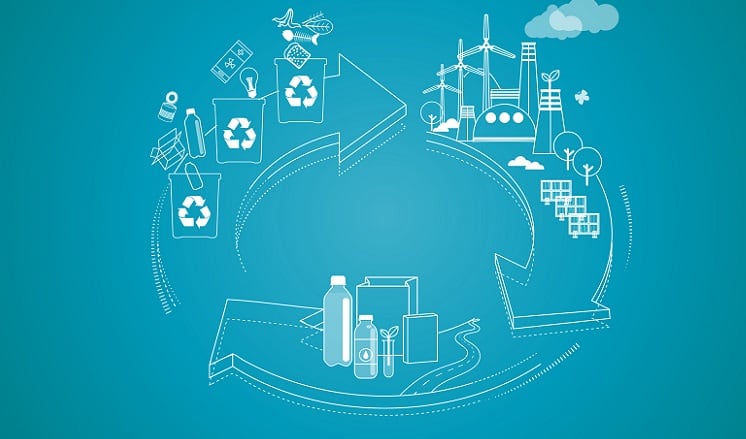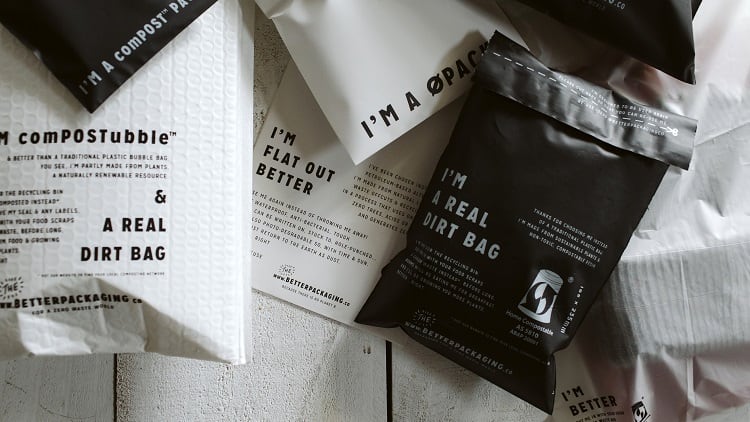This week the San Francisco, California – based beauty retailer announced new Sustainable Packaging Guidelines that all brand partners will need to meet, with specific benchmarks for 2021 and 2023, and ongoing opportunities for brands to find Smart Design packaging options and to work toward a truly circular packaging strategy.
In a social media post this week, the retailer explained the impetus for the new beauty packaging guidelines saying, “The goal of the Sustainable Packaging Guidelines: to reduce beauty’s impact on the climate, wildlife, and communities. An estimated 120 billion cosmetics are created annually, and the majority of beauty packaging is not reused or recycled in the US. Virgin plastic production is carbon- and chemical-intensive, and often results in toxic pollution along the lifecycle of the package. We are at a tipping point.”
And the company also highlights the fact that they believe these new guidelines amount to “the strongest packaging commitment in retail.”
Phase 1 and Phase 2 of Credo’s new beauty packaging guidelines
With this latest initiative, Credo has set deadlines for brands to eliminate waste from wipes, masks, spatulas and such as well as single-dose samples; and to replace virgin petrochemical plastic. By June of 2021, the Clean Beauty retailer will “prohibit single-use masks and wipes.”
According to Credo’s guidelines update, the company made this determination because, “even though masks and wipes are so easy and convenient, they’re inherently wasteful. We hope to see more reusable and innovative options for these categories.”
Additionally, the retailer is “asking brands to stop using little spatulas and other materials that are bound for the landfill, and we’re evolving our sampling program so that we’re not encouraging thoughtless consumption of little packets that often end up as pollution.”
These new rules are certainly an opportunity for inventive companies like Anisa International that has a new innovative collection of skin care brushes and tools, and for brands like Vike Beauty—whose first product, a makeup removing spray, replaces the need for facial wipes.
By June 2023, Credo brand partners will need to use at least 50% of recycled plastic content or something even more sustainable (for packaging that was currently composed of virgin petrochemical plastic).
Phase 3 and Phase 4 of Credo’s new beauty packaging guidelines
The third and forth phases of Credo’s new packaging guidelines for cosmetics, personal care, and wellness brands are “ongoing” and call for smart packaging design that isn’t just environmentally sustainable in theory but rather in practice: “Brands cannot imply packaging is compostable or recyclable if it is not, and must provide clear, accurate disposal instructions for consumers in an effort to help improve the overtaxed, contaminated recycling stream,” explains the packaging guidelines update for clean beauty brands.
The company’s ultimate goal seems to be to encourage beauty brands to create truly circular packaging strategies. And Credo’s current strategy for circularity preferences refillable packaging. “Credo is putting a big emphasis on reusable packaging systems: durable containers the customer keeps and refills with new product, in packaging designed to be environmentally preferable,” states the fourth guideline.
Credo suggests that under this concept consumers will purchase refill pouches for many products; and reflecting back to the prior guideline, those pouches will need to recyclable or otherwise disposable in a sustainable way.
---

This year, circularity has become a key topic of interest and innovation in the cosmetics and personal care industry, and one that Deanna Utroske finds herself writing about with increasing frequency. Known for spotting trends and influential beauty industry movements early, Deanna writes daily news about the business of beauty in the Americas region and regularly produces video interviews with cosmetics, fragrance, personal care, and packaging experts as well as with indie brand founders. She is currently the Editor of CosmeticsDesign.com.




